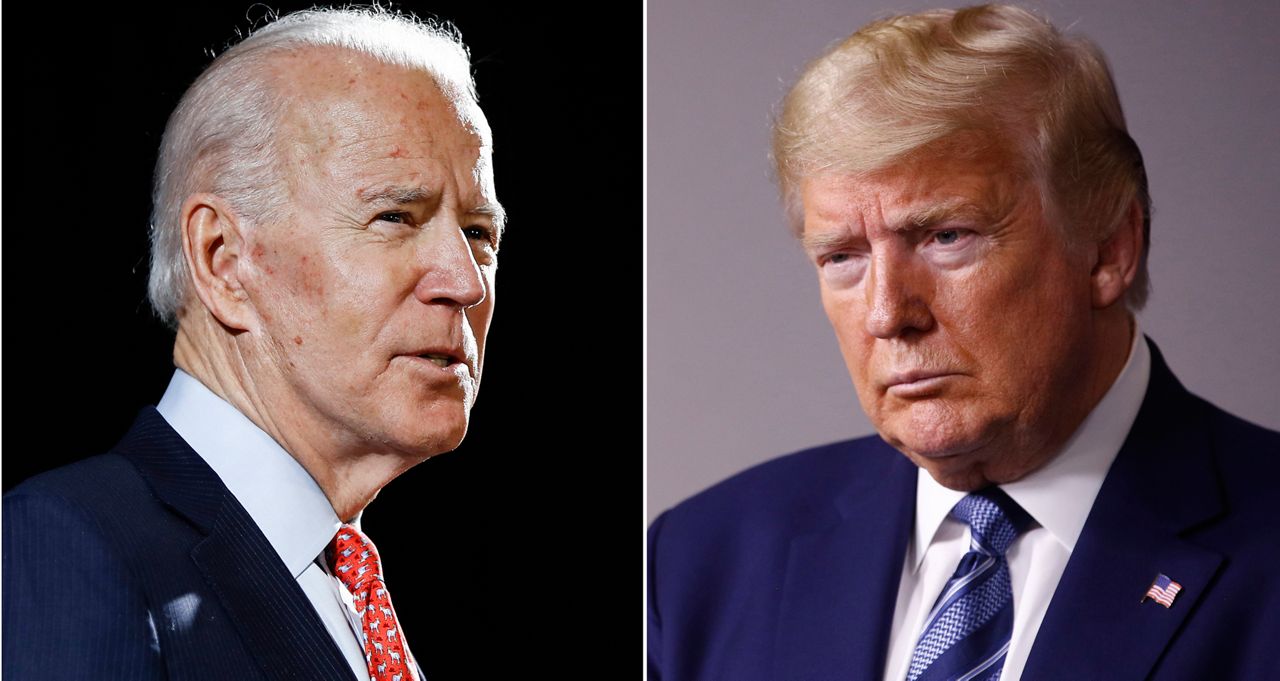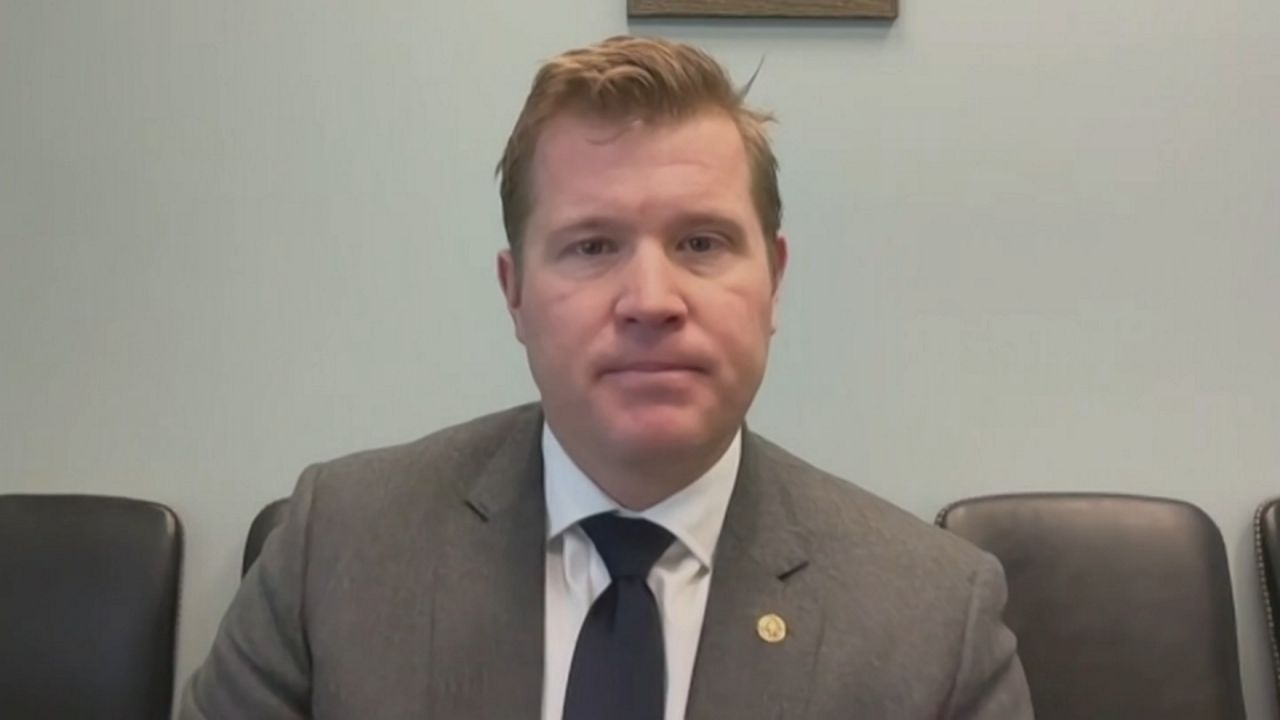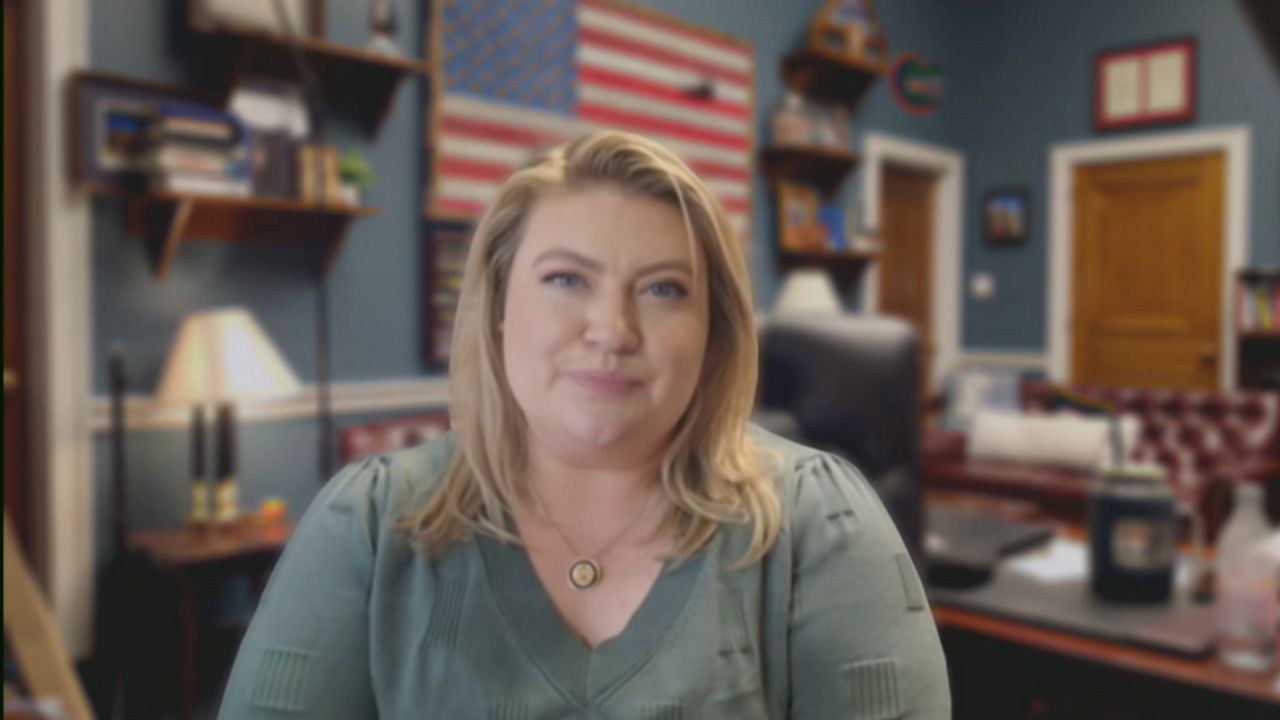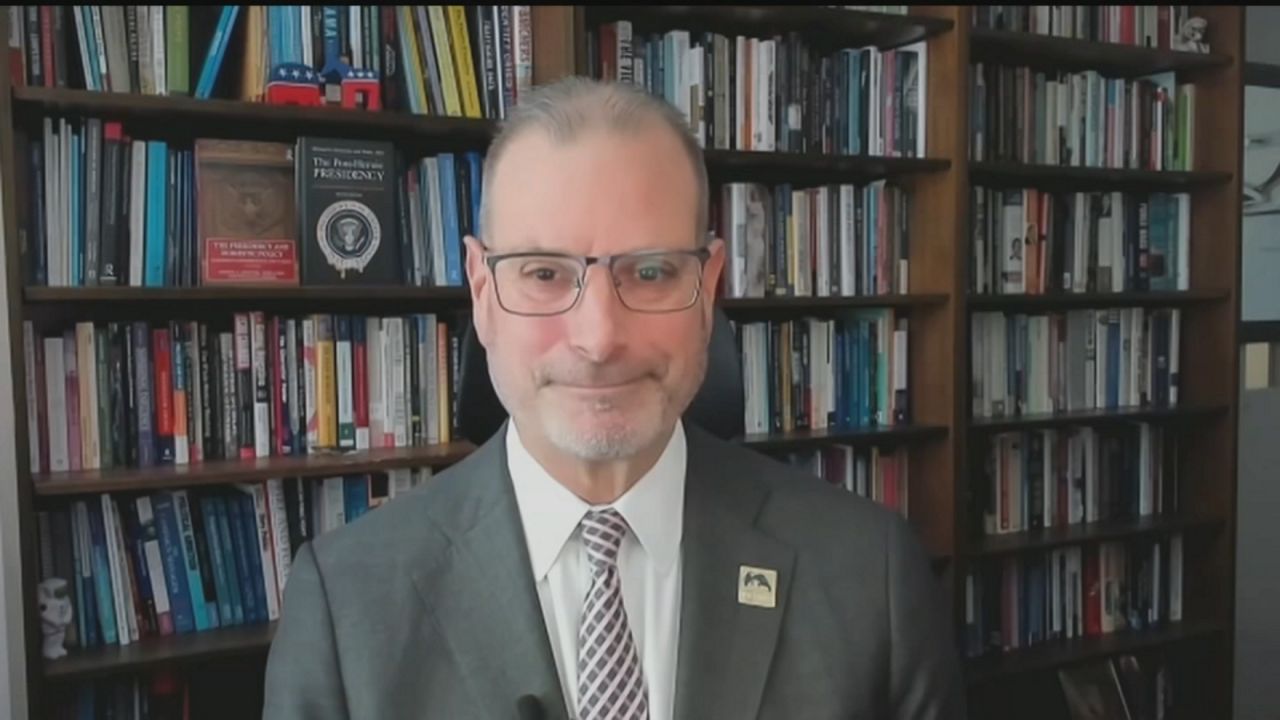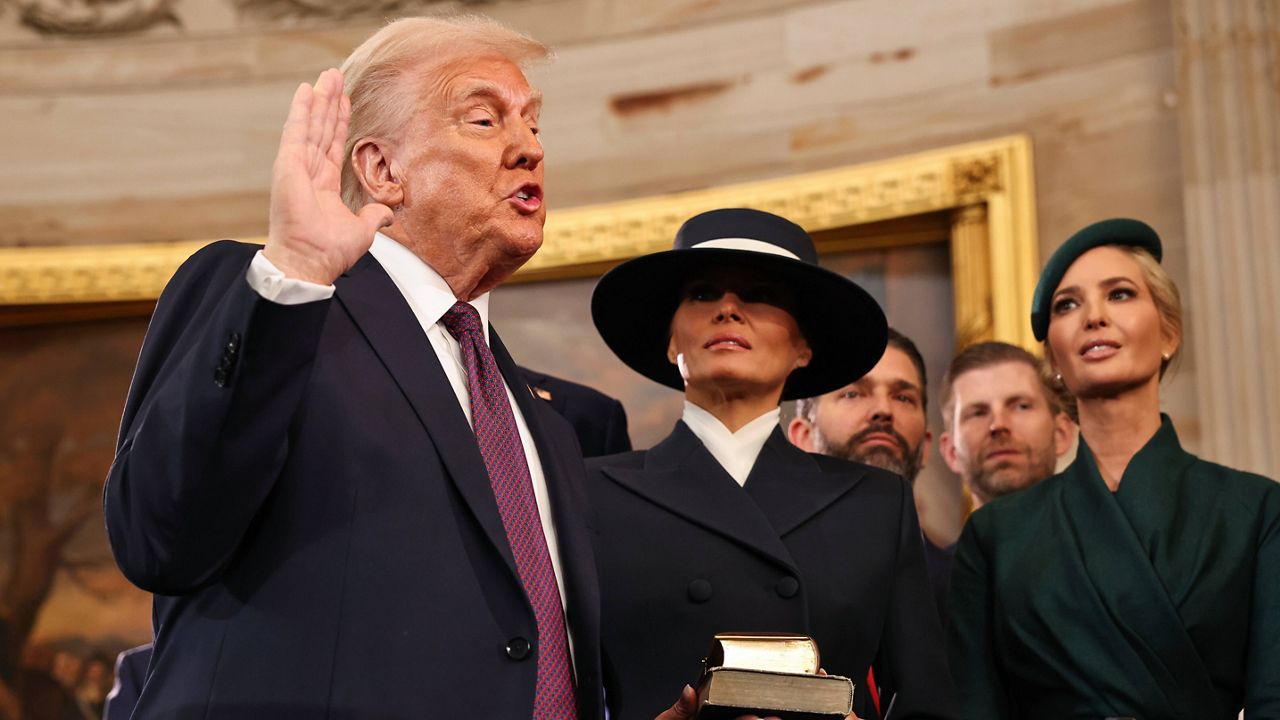One hundred days out, polls show President Trump’s reelection chances may be endangered — in large measure because of how he’s handled the coronavirus pandemic so far.
And while it’s too soon to see if it will work, the Republican incumbent is now changing course.
After long ridiculing and dismissing face coverings, the President now says wearing a mask is patriotic.
His convention speech next month is up in the air, after he suddenly canceled it, citing the pandemic. (His reversal after mocking North Carolina’s Democratic governor for restricting a full-capacity Republican convention in its original location.)
And Trump now says of America’s battle against the Coronavirus: “It will probably, unfortunately, get worse before it gets better. ” That’s a far cry from the President predicting in April that he thought some states would be back to business by May 1.
“It was untenable and it just wasn't realistic,” said Sam Nunberg, a top political advisor for Trump’s 2016 campaign. “It's not where the country is.”
Today there are more than 4 million positive cases in the United States; One hundred days ago, there were fewer than 1 million.
Today, there are about 140,000 fatalities, according to the COVID Tracking Project; One hundred days ago, about 30,000 people had died of COVID-19 in the country.
Today, the unemployment rate is stuck in double digits; One hundred days ago, there was talk about returning jobs.
Both the President, 74, and the presumptive Democratic nominee, Joe Biden, 77, continue to hold the kind of low-key campaign events that would have once been unthinkable. Politically speaking, observers say, this hurts Trump more while helping Biden.
The President remains popular in his party, but big rallies were key to Trump’s political brand. But even as the pandemic forces him to keep crowds low, his disapproval rating among Americans broadly is 56 percent, compared to 42 percent approving, according to an average from Real Clear Politics.
“As a referendum on the president, both the events and the president’s response to those events, has led to a clear downturn across the board for him,” said Charles Franklin, Director of the Marquette Law School Poll in Milwaukee.
The pandemic and the related economic meltdown are two of the major issues still dominating headlines. Meanwhile, a national debate over race and policing are leading to continued protests. And each candidate is trying to use these issues as lightning rods to strike to his own electoral advantage.
The President has seized on flashes of unrest to deploy, or threaten to deploy, federal agents to cities.
Last month, he signed an executive order encouraging local police to have more training and creating a national misconduct database.
Echoing the politics of the late 1960’s, Trump has also railed against cultural reckoning, with promises for “law and order” and vows to restore respect for a version of American history. He pointedly will not criticize defenders of the Confederate flag, a symbol of racism and treason to its many critics. At times, Trump paints the targets of his critics with a massive brush.
“As we meet here tonight, there is a growing danger that threatens every blessing our ancestors fought so hard for, struggled, they bled to secure,” he said at Mount Rushmore July 3. “Our nation is witnessing a merciless campaign to wipe out our history, defame our heroes, erase our values, and indoctrinate our children.”
His campaign seems is centering on several strategies, many overlapping. They include:
- A vast mobilization of his base of white, male voters, particularly those without college degrees
- Tapping into concerns about China’s growing power
- Convincing enough voters that the historically-moderate Biden has morphed into a tool of a Democratic Party shifting farther into radical territory and falsely claiming that the former vice president wants to cut the budgets of the police.
In an interview with Spectrum News Sunday, Tom Perez, chairman of the Democratic National Committee, wasn’t buying it – saying Democrats would lower the temperature: “Joe Biden is a healer-in-chief. Joe Biden wants to bring the country together. He will unite the country.”
Biden has talked about “systemic racism.” He also is proposing $300 million more for community policing and standardizing use of force guidelines.
“Racism has been a fixture in our society for hundreds of years,” he wrote in an op-ed column last month. “It will take leadership at the highest levels of our government – and sustained grassroots pressure from communities who will no longer stand by silently when injustices are inflicted on people of color.”
To win, observers note, Biden could stitch together a winning coalition built on a number of political blocs, also with many overlapping concerns. They include:
- Those who voted for Trump, but have now significant concerns about him in style and substance, particularly women in the suburbs.
- Progressives willing to overlook Biden’s historic moderation because he has offered new economic plans like a $775 billion childcare plan.
- Older African-American voters eager to see President Barack Obama’s Vice President in the Oval Office.
Over the next few weeks, Americans will have the chance for a closer look at the former Vice President – albeit one largely produced by Biden’s own vast campaign operation. His in-person convention in Milwaukee will now be “anchored” there; high-profile supporters, like Obama, are instead expected to appear remotely.
It’s also unclear where Trump will accept his nomination, after he scrapped Jacksonville.
But the next 100 days are critical. Here are just a few questions in an extraordinary year:
- Who will Biden pick as his running mate? Will he and she (he’s vowed to choose a woman) appear together in person?
- Will there definitely be debates, including a town hall-style forum?
- Will the pandemic ease? (In Arizona, for instance, hospitalizations appear to be steadily descending from a peak earlier in July.)
- Will there be an announcement of a vaccine before Election Day?
- How many kids will return to school and how many will continue remote learning?
- Will voting systems be able to withstand the strain of increased interest, and a health-related desire to mail in ballots and not vote in person?
- Will the polls be wrong, as many were before Election Day 2016?
- Will there be an “October Surprise” with the president suddenly announcing some sort of military action in the final weeks of the race?
Indeed in a conference call with reporters Friday to discuss the state of the race, Trump’s new campaign manager repeatedly invoked 2016, waiting more than a half-hour before even mentioning the pandemic.
Analysts say polls this year show a stronger lead for Biden; there’s already talk of a Blue Wave dislodging Republican control of the U.S. Senate while building on the Democratic majority in the House.
“I think the simplest thing is to say wait until November,” said Franklin, the pollster. “We'll find out if they are right or wrong this year.”




